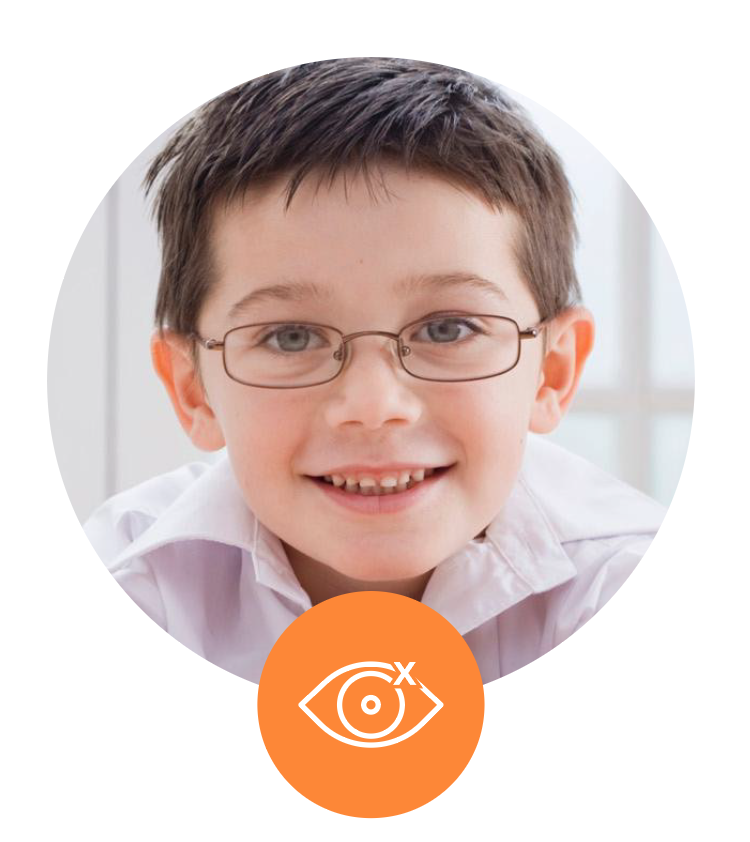What is Behavioural Optometry?
Behavioural optometry determines if a visual problem limits the patient’s education or performance outcomes. This involves assessing visual defects, which can be considered hardware problems, such as refractive error, strabismus and ocular health. There is also an assessment of visual deficits, which can be considered ‘software’ problems such as visual processing.
Behavioural optometry involves a comprehensive assessment of distance and near binocular vision, accommodation, eye movements, refraction and visual processing development. Behavioural optometry aims to detect and treat vision problems that can interfere with reading, computer use, learning to read and other activities of daily living. Treatment may include lenses, prisms and vision therapy.
WHO WOULD BENEFIT?
Anyone. Behavioural eye examinations are comprehensive, but we commonly see
Adults struggling with eyestrain
Children & Adult with a lazy eye
(functional amblyopia)
Children with vision related learning problems such as:
Poor visual spatial organisation, visual discrimination, visual memory, visual sequencing and visualisation. These are important skills for learning to read
Poor focusing, convergence and reading eye movement. These are important skills for efficient reading
Children & Adult with an intermittent eye turn
Patients whose vision was affected by acquired brain injuries
i.e. spatial neglect and hemianopia
Before your Behavioural Eye Examination
Complete the relevant online questionnaire form. If you are unsure, call us for guidance on which form to complete
Extensive Child Questionnaire (for children with know behavioural or learning difficulties)
Extensive Adult Questionnaire (for adults with moderate to severe visual concerns)
Your Medicare card and private health insurance card are required as appropriate.
All prescription spectacles you currently use.
If you wear contact lenses, please wear them to your appointment and bring your contact lens case. It is helpful to bring the boxes or lens packets that indicate the lens manufacturer, brand name, power, base curve and diameter.
Any referrals or relevant reports from a Psychologist, Optometrist, Speech Pathologist or OT.
Consultation Structure & Fees
1. Visual Function Evaluation
40 minutes - $180
medicare rebate of $62.15 to $97*
This evaluation consists of
Case History
Distance Near Refraction and Acuities
Fixation stability
Focusing abilities
Eye Teaming
Stereopsis & Fixation Disparity
Strabismus and Amblyopia
Confrontation Visual Fields
Colour Vision
Ocular Health
Ocular Coherence Tomography / Infrared Eye Tracking Assessment
*If you had your eyes tested by another optometrist in the last 3 years, please provide a referral letter from your optometrist so we can provide you the full medicare rebate.
2. Visual PROCESSING Evaluation
80-minute session - $260 EACH
medicare rebate of $62.15 per session
This evaluation is preferably done when the child is most alert. It consists of
Bilateral Integration & Ocular Motor (Eye Movement)
Directional Concepts
Motor Free Visual Form Perception, i.e. visual discrimination, visual memory, visual sequencing, visual form constancy, visual figure-ground and visual closure
Visual-Motor and Form Reproduction
Information Span or Visual Memory
Auditory and Visual Auditory Integration
3. PARENT CONFERENCE & report
40 minutes - $180
MEDICARE REBATE OF $33.15
A meeting is scheduled with the parents or guardians to review the findings of the visual function and visual perceptual evaluation. Further insights or concerns about the patient are discussed here. The optometrist will discuss treatment options and prepare a report based on the outcome of the meeting. Copies of the report will be forwarded to those involved in the patient's care, such as teachers, occupational therapists, and educational psychologists.
4. Subsequent evaluations
40 minutes - $150 to 180
MEDICARE REBATE OF $33.15 to $62.15
Patients require ongoing review to assess the effectiveness of their treatment. Subsequent evaluations of visual functional skills within the next three years will cost $150 to $180. A medicare rebate will apply. If a visual perceptual evaluation is required, a 60-minute session is organised and will cost $220. A medicare rebate of $33.15 will apply. Your behavioural optometrist will inform you of what is more appropriate.






